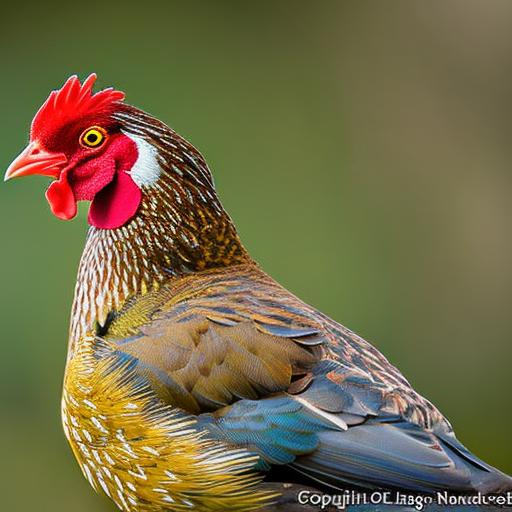In recent years, there has been a growing trend of backyard chicken keeping. More and more people are realizing the benefits of having their own flock of chickens. Not only do chickens provide fresh eggs, but they also offer natural pest control and fertilizer for the garden. Keeping chickens can be a rewarding and enjoyable hobby that allows you to connect with nature and become more self-sufficient.
One of the main benefits of keeping chickens is the abundance of fresh eggs they provide. There is nothing quite like collecting eggs from your own backyard and knowing exactly where they came from. Fresh eggs are not only delicious, but they are also more nutritious than store-bought eggs. Chickens that are allowed to roam freely and eat a varied diet produce eggs that are higher in omega-3 fatty acids, vitamin E, and beta-carotene.
Chickens also offer natural pest control for your garden. They love to eat insects, slugs, and snails, which can be a nuisance in any garden. By allowing your chickens to free-range in your yard, you can reduce the need for chemical pesticides and keep your garden healthy and thriving. Additionally, chickens produce high-quality fertilizer in the form of their droppings. This natural fertilizer is rich in nitrogen, phosphorus, and potassium, which are essential nutrients for plant growth. By using chicken manure as fertilizer, you can improve the health and productivity of your garden without relying on synthetic chemicals.
Key Takeaways
- Keeping chickens has many benefits, including fresh eggs, natural pest control, and fertilizer for your garden.
- Understanding the needs of chickens is important for their health and well-being, including proper nutrition, shelter, and protection from predators.
- Keeping a small flock of chickens has advantages, such as easier management and less space required.
- Two chickens need at least 10 square feet of space, including a coop and outdoor run.
- Choosing the right breeds for a small flock depends on factors such as egg production, temperament, and climate.
Understanding the Needs of Chickens
Before getting chickens, it is important to understand their basic needs. Chickens require food, water, shelter, and protection from predators in order to thrive. Providing these essentials will ensure that your chickens are healthy and happy.
When it comes to food, chickens need a balanced diet that includes grains, protein, fruits, vegetables, and calcium. You can purchase commercial chicken feed or create your own mix using a variety of ingredients. It is important to provide fresh water for your chickens at all times. Chickens can drink a surprising amount of water, especially during hot weather, so make sure to check their water supply regularly.
Chickens also need a safe and comfortable shelter to protect them from the elements and predators. A chicken coop should be well-ventilated, secure, and easy to clean. It should also provide enough space for your chickens to move around and engage in natural behaviors, such as scratching and dust bathing. Additionally, chickens need access to a secure outdoor area, known as a run, where they can stretch their legs and enjoy the fresh air.
The Advantages of Keeping a Small Flock
For beginners or those with limited space, keeping a small flock of chickens is ideal. A small flock typically consists of two to four chickens, which is manageable for most people. By keeping a small flock, you can develop a close relationship with each chicken and provide them with individual attention and care.
Having a small flock also allows you to observe the social dynamics of chickens more closely. Chickens have a hierarchical social structure, known as the pecking order. In a small flock, it is easier to see how each chicken interacts with others and establish their place in the pecking order. This can be fascinating to observe and provides insight into the natural behavior of chickens.
Another advantage of keeping a small flock is that it requires less space. If you have a small backyard or live in an urban area, you may not have enough space for a large flock. Two chickens can comfortably live in a smaller coop and run without feeling overcrowded. This makes it easier to provide them with the necessary care and attention they need.
How Much Space Do Two Chickens Need?
When it comes to space requirements for two chickens, it is important to provide enough room for them to move around and engage in natural behaviors. The minimum recommended space for two chickens is 10 square feet in the coop and 20 square feet in the run. However, more space is always better, especially if you have the room.
In the coop, chickens need enough space to perch, nest, and move around comfortably. Each chicken should have at least 4 square feet of floor space. It is also important to provide enough perches for your chickens to roost on. Perches should be at least 2 inches wide and placed at different heights to accommodate the natural roosting behavior of chickens.
In the run, chickens need enough space to stretch their legs and engage in natural behaviors, such as scratching and dust bathing. The run should be securely fenced to protect your chickens from predators and provide them with a safe outdoor space. It is also a good idea to provide some form of shade and shelter in the run, such as a small coop or a covered area.
Choosing the Right Breeds for a Small Flock
When choosing breeds for a small flock, it is important to consider factors such as temperament, egg production, and climate suitability. Some breeds are better suited for small flocks than others.
One popular breed for small flocks is the Rhode Island Red. These chickens are known for their friendly temperament, hardiness, and excellent egg production. They lay large brown eggs and are good layers throughout the year. Another good breed for small flocks is the Plymouth Rock. These chickens are also friendly and easy to handle, and they lay brown eggs consistently.
If you live in a colder climate, you may want to consider breeds that are more cold-hardy. Some cold-hardy breeds include the Buff Orpington, Wyandotte, and Australorp. These breeds have thick feathers and can withstand colder temperatures without issue.
It is also important to consider your own lifestyle when choosing breeds. Some breeds are more active and require more space to roam, while others are more docile and can be kept in smaller areas. Take the time to research different breeds and choose ones that are well-suited to your climate and lifestyle.
Feeding and Watering Two Chickens

Feeding and watering two chickens is relatively easy and straightforward. Chickens require a balanced diet that includes grains, protein, fruits, vegetables, and calcium. You can purchase commercial chicken feed or create your own mix using a variety of ingredients.
When it comes to feeding, it is important to provide a consistent supply of food for your chickens. Chickens should have access to food at all times, so make sure to refill their feeders regularly. It is also a good idea to offer treats such as fruits, vegetables, and mealworms to provide variety in their diet.
In terms of water, chickens need a fresh and clean supply at all times. Chickens can drink a surprising amount of water, especially during hot weather, so make sure to check their water supply regularly. It is also important to clean their water containers regularly to prevent the growth of bacteria.
Providing Shelter and Protection for Your Chickens
Providing shelter and protection for your chickens is essential for their health and safety. A chicken coop should be well-ventilated, secure, and easy to clean. It should also provide enough space for your chickens to move around comfortably.
When choosing a chicken coop, consider factors such as size, ventilation, insulation, and ease of cleaning. The coop should be large enough to accommodate your chickens comfortably and provide enough space for perches, nests, and feeders. It should also have windows or vents to allow for proper airflow and prevent the buildup of moisture.
In addition to the coop, chickens also need access to a secure outdoor area known as a run. The run should be securely fenced to protect your chickens from predators and provide them with a safe outdoor space. It is also a good idea to provide some form of shade and shelter in the run, such as a small coop or a covered area.
Health and Wellness of Two Chickens
Keeping your chickens healthy and well is essential for their overall well-being. Chickens can be prone to certain health issues, so it is important to be proactive in preventing and treating them.
One common health issue in chickens is parasites, such as mites and lice. Regularly inspect your chickens for signs of parasites, such as feather loss, redness, or itching. If you notice any signs of parasites, treat your chickens with appropriate medications or natural remedies.
Another common health issue in chickens is respiratory infections. These can be caused by bacteria or viruses and can spread quickly among a flock. To prevent respiratory infections, make sure your coop is well-ventilated and clean. It is also important to practice good biosecurity measures, such as quarantining new chickens before introducing them to the flock.
Regular check-ups and vaccinations are also important for maintaining the health of your chickens. Find a veterinarian who specializes in poultry and schedule regular check-ups for your flock. Vaccinations can help prevent common diseases such as Marek’s disease and Newcastle disease.
The Social Dynamics of a Small Flock
Chickens have a hierarchical social structure known as the pecking order. In a small flock, it is easier to observe and understand the social dynamics between chickens. The pecking order determines the social rank of each chicken and affects their behavior within the flock.
When introducing new chickens to an existing flock, it is important to do so gradually and carefully. Chickens are territorial animals and may become aggressive towards newcomers. To minimize stress and aggression, introduce new chickens to the flock slowly over a period of several weeks. This allows the chickens to establish a new pecking order and reduces the risk of injury.
It is also important to provide enough resources for all chickens in the flock. This includes food, water, perches, and nesting boxes. By providing enough resources, you can reduce competition and minimize aggression within the flock.
The Joys of Keeping Two Chickens
Keeping a small flock of chickens can be a fun and rewarding hobby. Not only do chickens provide fresh eggs, but they also offer natural pest control and fertilizer for the garden. By understanding the needs of chickens and providing them with a safe and comfortable environment, you can ensure that your chickens are healthy and happy.
Whether you have a large backyard or a small urban space, keeping two chickens is manageable and enjoyable. You can develop a close relationship with each chicken and observe their social dynamics more closely. By choosing the right breeds, providing proper nutrition and care, and ensuring their health and wellness, you can experience the joys of keeping chickens firsthand. So why not consider adding a small flock of chickens to your backyard? You won’t regret it!
If you’re considering keeping just 2 chickens, you may also be interested in learning about chicken coop and run plans. Having a suitable and well-designed coop is essential for the comfort and safety of your feathered friends. Poultry Wizard offers a helpful article on chicken coop and run plans that can guide you in creating a cozy and secure space for your chickens. Check it out here for valuable insights and practical tips.
FAQs
What is the minimum number of chickens you can keep?
There is no legal minimum number of chickens you can keep, but it is recommended to keep at least two chickens for socialization and companionship.
Can you keep just 2 chickens?
Yes, you can keep just 2 chickens. However, it is important to ensure that they have enough space, food, and water, and that they are not lonely or bored.
What are the benefits of keeping chickens?
Keeping chickens can provide fresh eggs, natural pest control, and fertilizer for your garden. They can also be entertaining and provide companionship.
What are the disadvantages of keeping chickens?
Keeping chickens requires time, effort, and money for their care and maintenance. They can also be noisy and messy, and may attract predators.
What do chickens need to be healthy and happy?
Chickens need a clean and safe living environment, access to fresh water and food, and regular veterinary care. They also need socialization, exercise, and mental stimulation.
What are some common breeds of chickens?
Some common breeds of chickens include Rhode Island Reds, Leghorns, Plymouth Rocks, and Wyandottes. Each breed has its own unique characteristics and egg-laying abilities.
Do you need a rooster to have eggs?
No, you do not need a rooster to have eggs. Hens will lay eggs regardless of whether or not there is a rooster present. However, if you want fertilized eggs to hatch into chicks, you will need a rooster.
Meet Walter, the feathered-friend fanatic of Florida! Nestled in the sunshine state, Walter struts through life with his feathered companions, clucking his way to happiness. With a coop that’s fancier than a five-star hotel, he’s the Don Juan of the chicken world. When he’s not teaching his hens to do the cha-cha, you’ll find him in a heated debate with his prized rooster, Sir Clucks-a-Lot. Walter’s poultry passion is no yolk; he’s the sunny-side-up guy you never knew you needed in your flock of friends!







